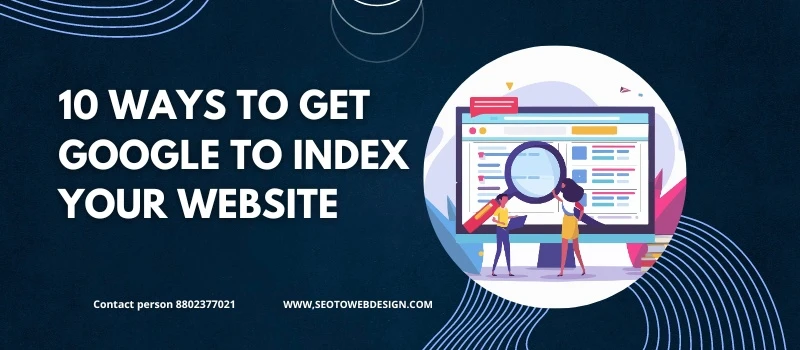1. Update Google Search Console With Your website.
The first and most straightforward step is submitting your website’s URL to Google Search Console. This free tool allows you to directly inform Google that your website exists. After signing up, you can submit your website’s sitemap, which helps Google navigate and index your site effectively.
2. Create And Submit A Sitemap
A sitemap is a file that lists all the pages on your website, helping search engines crawl and understand the structure of your site. If your website doesn’t already have a sitemap, you can generate one using tools like Yoast SEO (for WordPress) or Screaming Frog. Once created, submit the sitemap to Google Search Console for faster indexing.
3. Ensure Your Website Is Mobile-Friendly
Google prioritizes websites that offer a smooth, mobile-friendly experience. Google has shifted to mobile-first indexing, which means that mobile users will see your site more often when it is crawled. Use Google’s Mobile-Friendly Test to make sure your site is optimized for mobile devices, enhancing your chances of getting indexed quickly.
4. Use Internal Linking Strategically
Internal links help Google discover more pages on your website. By linking to your important pages from other parts of your site, you guide Google’s crawlers to index them. Ensure your internal links are relevant and lead to high-quality content, improving user experience and SEO simultaneously.
5. Create High-Quality, Fresh Content
One of the best ways to get Google’s attention is by publishing high-quality, regularly updated content. Google bots favor fresh content, so updating existing posts or consistently posting new articles can encourage faster indexing. Consider adding a blog section to your site to consistently generate content that’s valuable to your audience and attractive to Google crawlers.
6. Submit Your Website To Online Directories
While it may seem like an old-school tactic, submitting your website to reputable online directories can help Google discover it more quickly. Sites like Yelp, DMOZ, or industry-specific directories can give your site credibility and create more backlinks, which help Google crawlers navigate your site more effectively.
7. Leverage Social Media Sharing
Google uses social signals as an indirect ranking factor, meaning that content shared on social platforms is more likely to get indexed. When you publish new content, share it across your social media accounts. This creates backlinks to your site and signals to Google that your website is relevant and updated. Engage with your audience and encourage them to share your content for an even broader reach.
8. Optimize For Page Speed
Google favors websites that load quickly, as it leads to a better user experience. You may assess your website’s loading speed and pinpoint areas for improvement by using tools such as Google PageSpeed Insights. Reducing image sizes, minimizing code, and leveraging browser caching can all help improve your website’s speed and ensure quicker indexing by Google.
9. Set Up Google Analytics
Installing Google Analytics on your website doesn’t directly lead to faster indexing, but it does provide insights into how visitors are interacting with your site. More importantly, it sends signals to Google that your website is live, functional, and actively generating traffic. Make sure to link Google Analytics with Google Search Console for a seamless integration of data and performance metrics.
10. Fix Crawl Errors
Google Search Console allows you to see if Google’s bots are having any issues crawling your website. Crawl errors can prevent Google from properly indexing your site. Regularly check the “Coverage” section in Google Search Console and fix any crawl errors you find. Common issues include broken links, server errors, and incorrect URL structures. Addressing these issues promptly will ensure Google has no trouble indexing your website.
Getting Google to index your website is crucial for online visibility and growth. While some indexing methods may take longer than others, using a combination of the above techniques will help speed up the process and keep your site competitive in search results. Make sure your website is always optimized, with fresh content and an easy-to-navigate structure, and Google will index your site faster than you think. With these 10 tips, your website will be on its way to getting indexed by Google in no time. To ensure success, put these methods into practice and keep an eye on your progress using Google Search Console.

